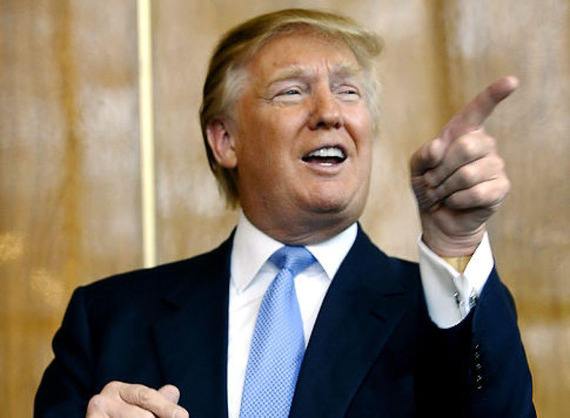It's now official: on the day Donald J. Trump takes the presidential oath of office, he will be the first American president in history to have committed an impeachable offense as of Day One by virtue of his announcement that he will not sell his businesses or place his assets in a blind trust while serving as president. That offense, as nearly all have concluded, including the Office of Government Ethics, is his plain violation of the Emoluments Clause found in Article I, section 9 of the Constitution. It states flatly that "no Person holding any Office of Profit or Trust. . .shall, without the Consent of Congress, accept of any present, Emolument, Office, or Title, of any kind whatever, from any. . .foreign State." Article II, section 1 raises additional flags noting that the president "shall not receive. . .any other Emolument from the United States, or any of them [meaning the states]."
Yet Trump will not resign, and his new administration will begin in whatever manner Trump is able to effectuate. Yet how can this be? The answer is that the burden for action in a matter of impeachment lies with Congress. As clear and categorical as this violation is, Congress will do nothing -- at least not in the foreseeable future. No reflection is required to understand the reason: Republicans now hold majorities in both houses of Congress and the presidency, something that has happened rarely since the advent of the 1930s. It would be the height of political folly for them to throw this opportunity away in a nasty and divisive impeachment fight.
But what about the Constitution and the law? Impeachment was included in the Constitution to remedy the very situation Trump has created. And make no mistake, like Richard Nixon and Watergate, this was a self-created mess, caused by Trump's core trait: that he does exactly what he wants to do, regardless of law, morality, propriety, or any other constraints. It is the chief and outstanding fact of both his public and private life. And it is also one reason that he was elected president.
But to return to impeachment, shouldn't such a clear-cut case override mere partisan advantage? The answer here is Yes and No. A key lesson of impeachment is that it is not, in fact, just about law (even if it should be). It is also about politics. Alexander Hamilton understood this when he cautioned in the Federalist Papers of the "danger" that an impeachment proceeding "will be regulated more by the comparative strength of parties than by the real demonstrations of innocence or guilt." This lesson is illustrated by the only president in modern times to undergo an impeachment trial, Bill Clinton.
When congressional leaders, led by House Speaker Newt Gingrich, decided to push articles of impeachment against Clinton in 1998, they had the votes in the Republican-controlled House (a simple majority is all that is required to approve impeachment articles), and Senate, but far from the two-thirds in that chamber needed to convict. Their key problem was that they lacked a persuasive case for impeachment; as a result, they could muster no Democratic votes of support in either house, and a few Republicans voted against impeachment in both chambers.
This contrasted with the move to impeach Richard Nixon in 1974, when the Democrats, then in control of Congress, were able to build bipartisan support in the House Judiciary Committee (although Nixon resigned before the full House voted). While the law says nothing about the need for bipartisan support for an impeachment effort, it is clear that it is a political prerequisite that helps resolve the problem Hamilton cited of using impeachment as a purely partisan tool.
The other key political fact was that the public never supported Clinton's impeachment. Before the Monica Lewinsky scandal broke in early 1998, Clinton's public approval rating was 60 percent. At the end of the impeachment process in early 1999, Clinton's popularity was 68 percent -- astonishingly, higher than when the process began.
In the case of Trump, he has not even assumed office yet, and like every president, the inauguration period is a moment when partisanship is set aside -- even though Trump's favorability rating of 37 percent is by far the lowest ever recorded for an incoming chief executive. Other possible remedies exist: Congress could vote to give its consent to Trump's existing financial arrangements (although that would also be a de facto admission of guilt); or it could invoke the presidential removal clause outlined in the 25th Amendment. But these options presume a willingness to act that Congress does not now have. We will see real action only when enough Republicans decide that enough is enough.

